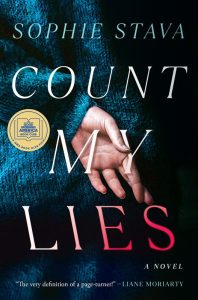
There are countless retellings of the Trojan War, yet few manage to strike a balance between grandeur, humor, and heartbreak the way Troy by Stephen Fry does. Known for his wit and narrative charm, Fry takes one of the world’s oldest and most tragic stories and turns it into something remarkably fresh, readable, and deeply human.
The fall of Troy is a story we think we already know: the abduction of Helen, the “face that launched a thousand ships,” the ten-year siege, the wrath of gods and men, and that infamous wooden horse. But Fry’s version feels different. He breathes life into the myths by focusing not just on the war, but on the intricate web of personalities, choices, and flaws that lead to inevitable ruin. The result is a retelling that feels both timeless and surprisingly modern.
From the very first chapters, Fry reintroduces us to familiar figures Priam, Hector, Achilles, Agamemnon, Paris, and Helen not as distant mythic heroes, but as complex and often painfully human beings. His prose is rich yet conversational, laced with wry humor and sharp observations that lighten the weight of the tragedy without diminishing its emotional impact. Readers who have found The Iliad a challenging or dry experience will find Fry’s storytelling a revelation: clear, lively, and effortlessly engaging.
What stands out most in Troy is Fry’s ability to organize a sprawling, chaotic mythos into a coherent and satisfying narrative. He gives us the context behind every major event the judgment of Paris, the divine rivalries among the gods, the doomed love stories and weaves them into a seamless tale of ambition, pride, and fate. Even the gods, often portrayed as untouchable beings, come alive as meddling, capricious forces whose flaws mirror those of humanity.
For readers who have followed Fry’s mythological trilogy (Mythos and Heroes preceding Troy), this book marks a shift. While the earlier volumes were structured as collections of stories, Troy moves in a more linear fashion, allowing the tension to build gradually toward the war’s inevitable conclusion. That continuity makes it Fry’s most cinematic and emotionally immersive work in the series.
His trademark humor remains intact, especially in the early sections where he introduces the sprawling cast with tongue-in-cheek commentary. Yet as the war begins and tragedy looms, Fry’s tone deepens. There are moments of sharp pathos that remind us why the story of Troy has endured for millennia. Despite knowing the fate of every hero, we still find ourselves holding our breath as if hoping, irrationally, for a different ending.
Trish, one Goodreads reviewer, captured this beautifully: “It’s the mark of a wonderful story when you know exactly what will happen and yet find yourself at the edge of your seat when re-reading it.” That’s precisely what Troy achieves.
Listening to the audiobook, narrated by Fry himself, is an added delight. His distinctive voice brings warmth and texture to the story, enhancing both the humor and the heartbreak. It’s the kind of narration that feels like sitting by a fire while an old friend recounts tales of gods, warriors, and doomed love.
In Troy, Fry reminds us that myths endure because they reflect who we are: proud, foolish, noble, and fragile. Beneath the armor and divine meddling lies the same humanity that drives us today the hunger for glory, the blindness of love, the cost of pride.
If you’re a lover of Greek mythology or simply someone who appreciates a master storyteller breathing new life into old legends, Troy is a must-read. It is tragic, witty, and deeply satisfying a testament to Fry’s ability to make even the most ancient tales feel alive again.
Rating: 5 out of 5 stars
Step into the world of gods and mortals and experience the fall of Troy through Stephen Fry’s eyes.
👉 Get your copy on Amazon here.


